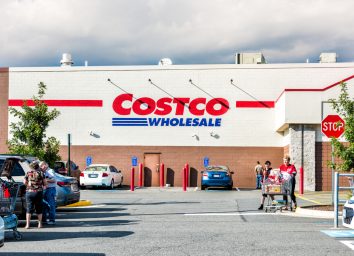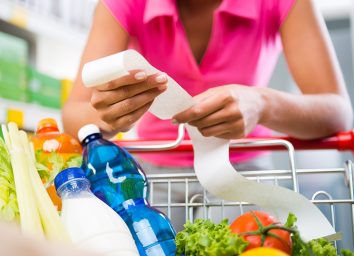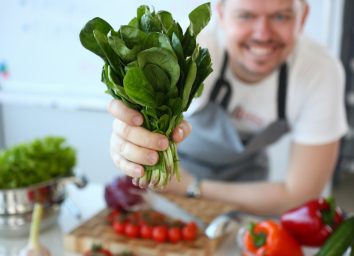19 Money-Saving Tips Every Shopper Should Know
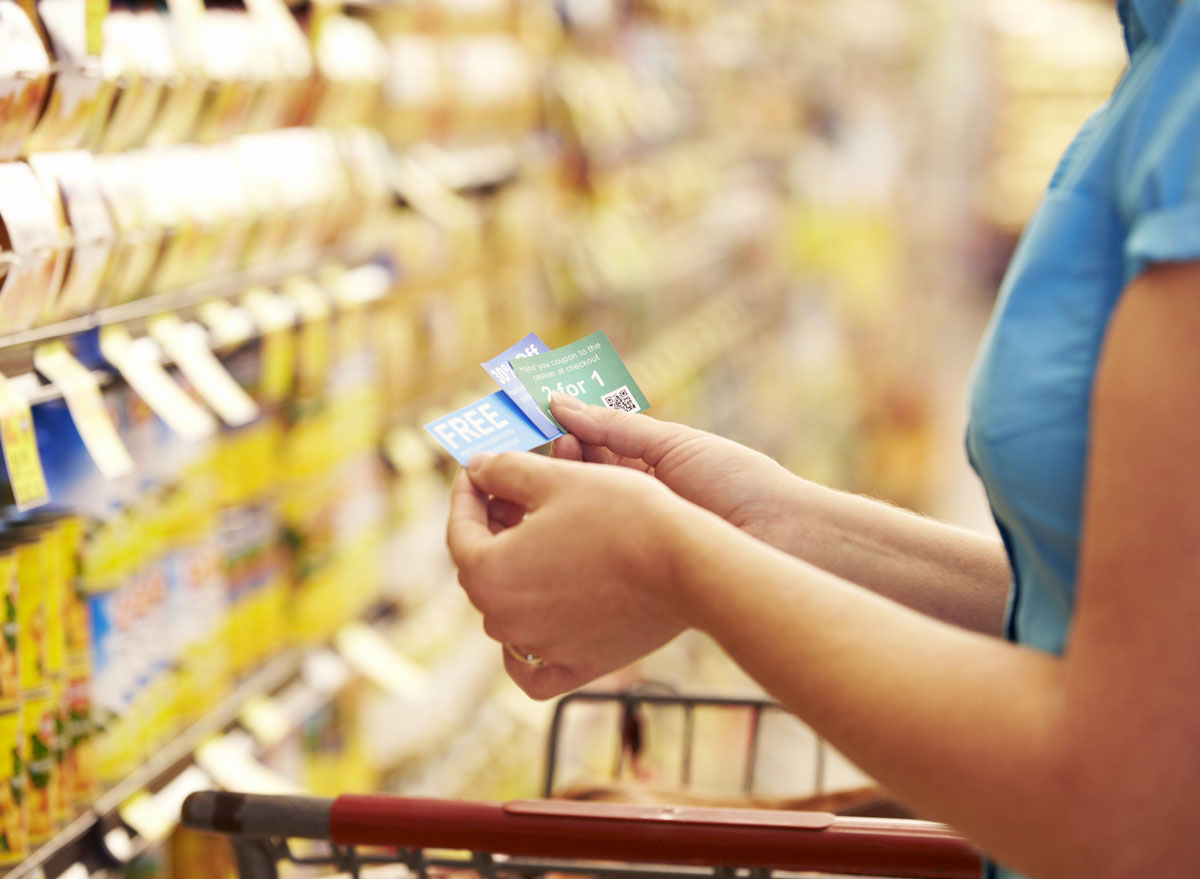
Roll your cart down the aisle in a grocery store, and you’re most likely going to be greeted be many bright lights, enticing smells, and row upon row of foods promising all different types of health benefits. So what can you trust is actually the best available, without spending a ton of money?
It’s no secret that the grocery store is your first step in building a healthy lifestyle for you and your family. But it’s also a business. Supermarkets are designed to make you spend as much money as possible, often on high-margin products loaded with cheap ingredients and non-nutritive calories.
The key to any good offense is a solid defense. Smart shoppers share a set of characteristics, and by pawing through the research and spending countless hours in supermarkets, we have managed to crack the code. Adopt these 25 habits and you’ll be well on your way to being a master of the modern-day market. And speaking of saving money, discover these 30 Cheap Lunch Tips!
Buy Things In Season
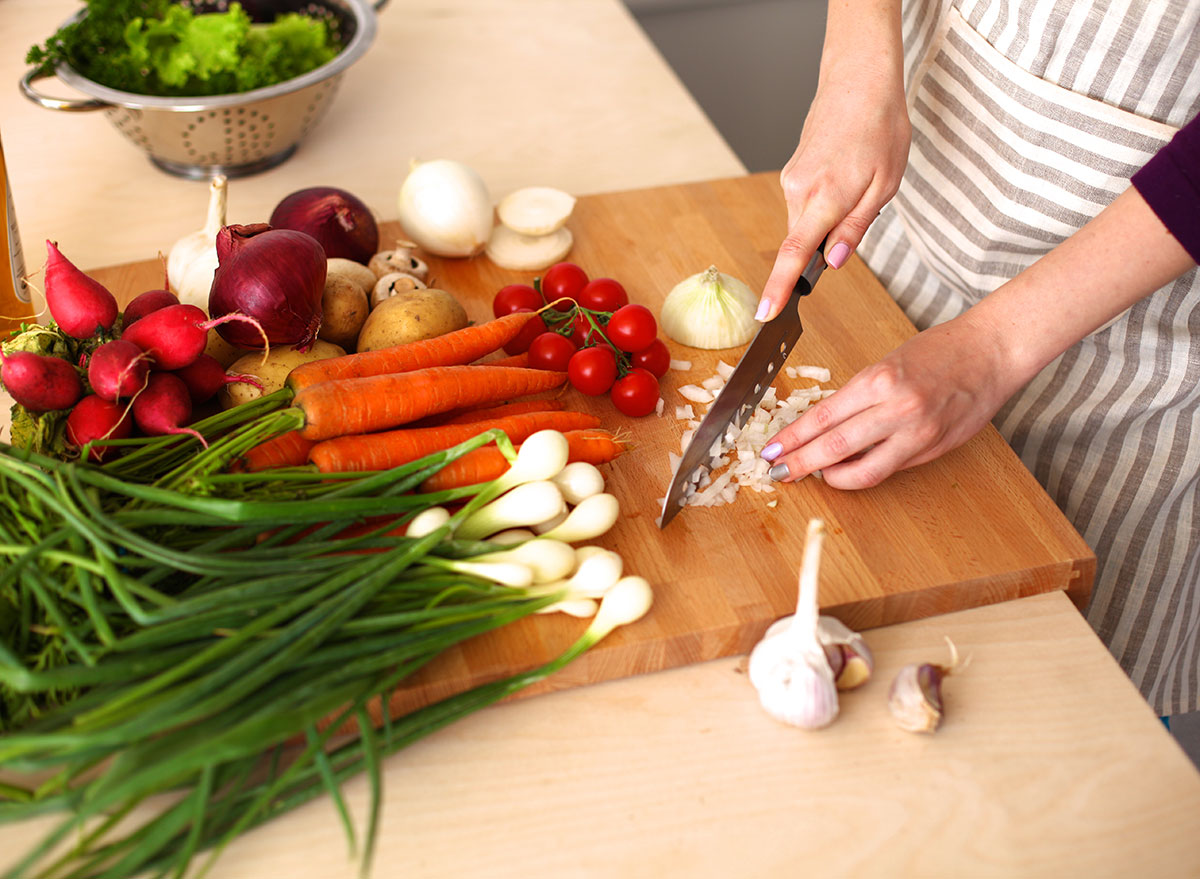
The reason why berries are very affordable during the summer, and outrageously expensive in the colder months? There is much less supply versus demand and it’s a lot harder to grow out of season fruits in different weather conditions. So to save money, Annie Lawless, holistic health coach and Blawnde.com founder, suggests eating in season. Start here, using this essential list of The 21 Surprising Foods That Melt Fat!
Pad Your Meals with Whole Grains and Beans
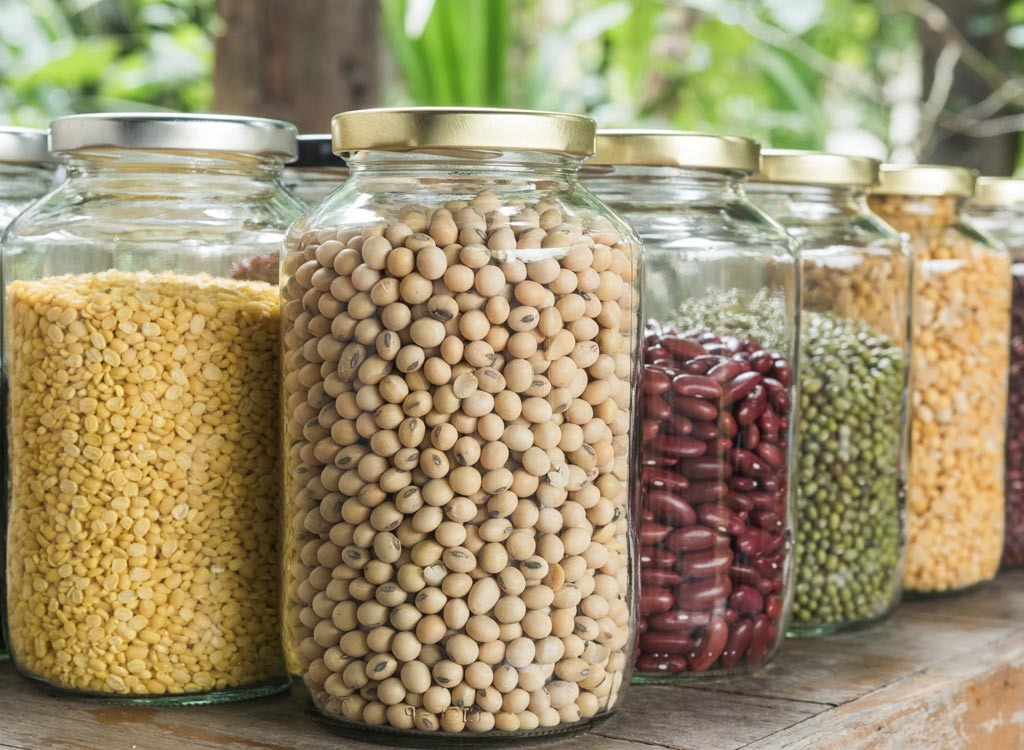
“Whole grains and legumes can be very inexpensive, but provide lots of filling protein and fiber that can really bulk up a meal for minimal cost,” says Lawless about one of our favorite weight loss tips. “When making burgers, soups, or casseroles, use less meat and incorporate more whole grains and beans.”
Looking for more help? You’re in luck, as your ultimate restaurant and supermarket survival guide is here!
Plan and Prep in Advance
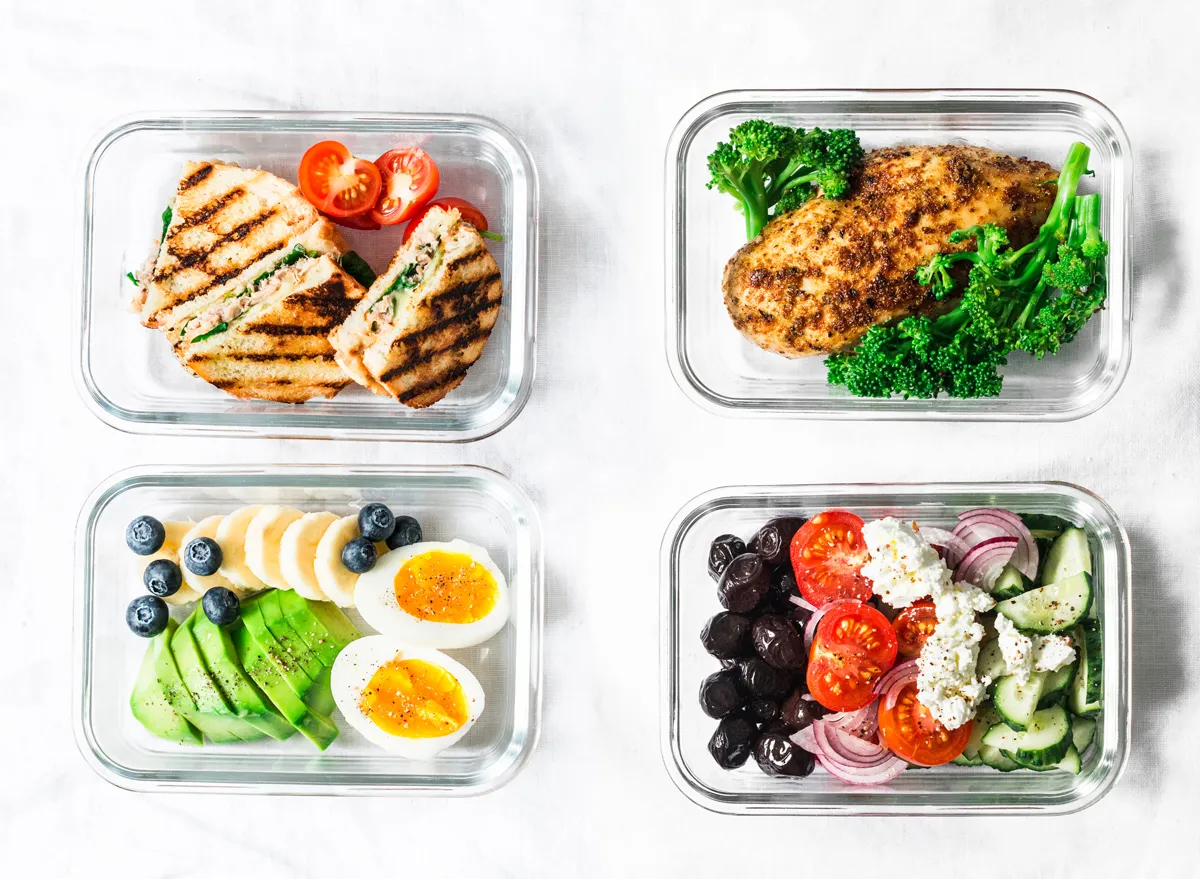
When you’re not prepared, you are much more likely to run to the store and buy pre-washed, chopped, and pre-cut foods that cost much more than making them yourself. “When you have no meal plans, it’s easy to feel rushed and desperate to grab something quick and your budget goes out the window,” says Lawless. “Arm yourself with some preparation so you don’t spend money unnecessarily in a pinch.” You’ll also be more likely to avoid fatty, processed foods. For other sneaky ways to melt fat fast, don’t miss these 32 Life-Changing Diet Hacks for Weight Loss!
Organize Your Kitchen
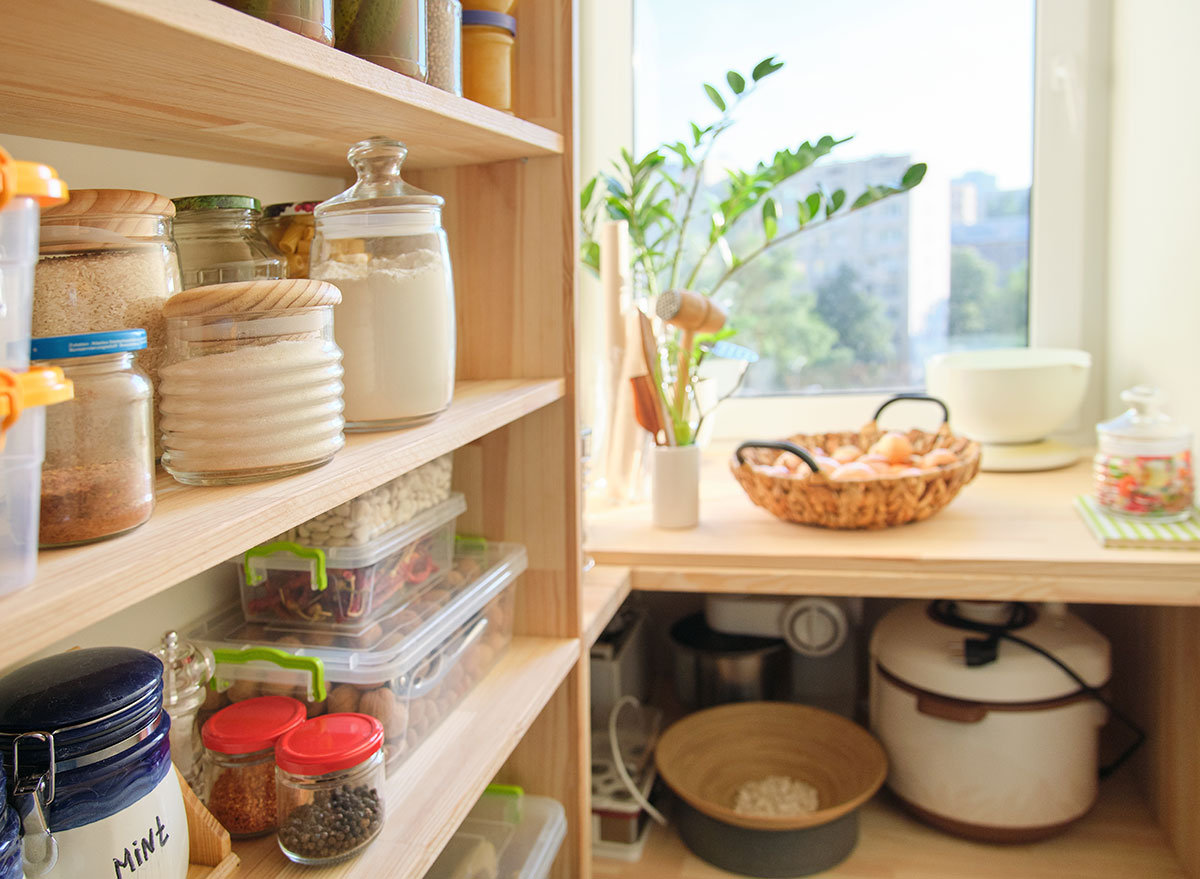
If your pantry and refrigerator are easy to navigate and you can clearly see what you have on hand, you can reduce a lot of food waste by utilizing the groceries you’ve already spent your hard earned money on. Lawless painfully reminds us that, “Nothing feels worse than opening a drawer in the fridge to realize you let beautiful fruit or veggies get moldy and have to throw them in the trash because you forgot they were in there!”
Love Your Leftovers
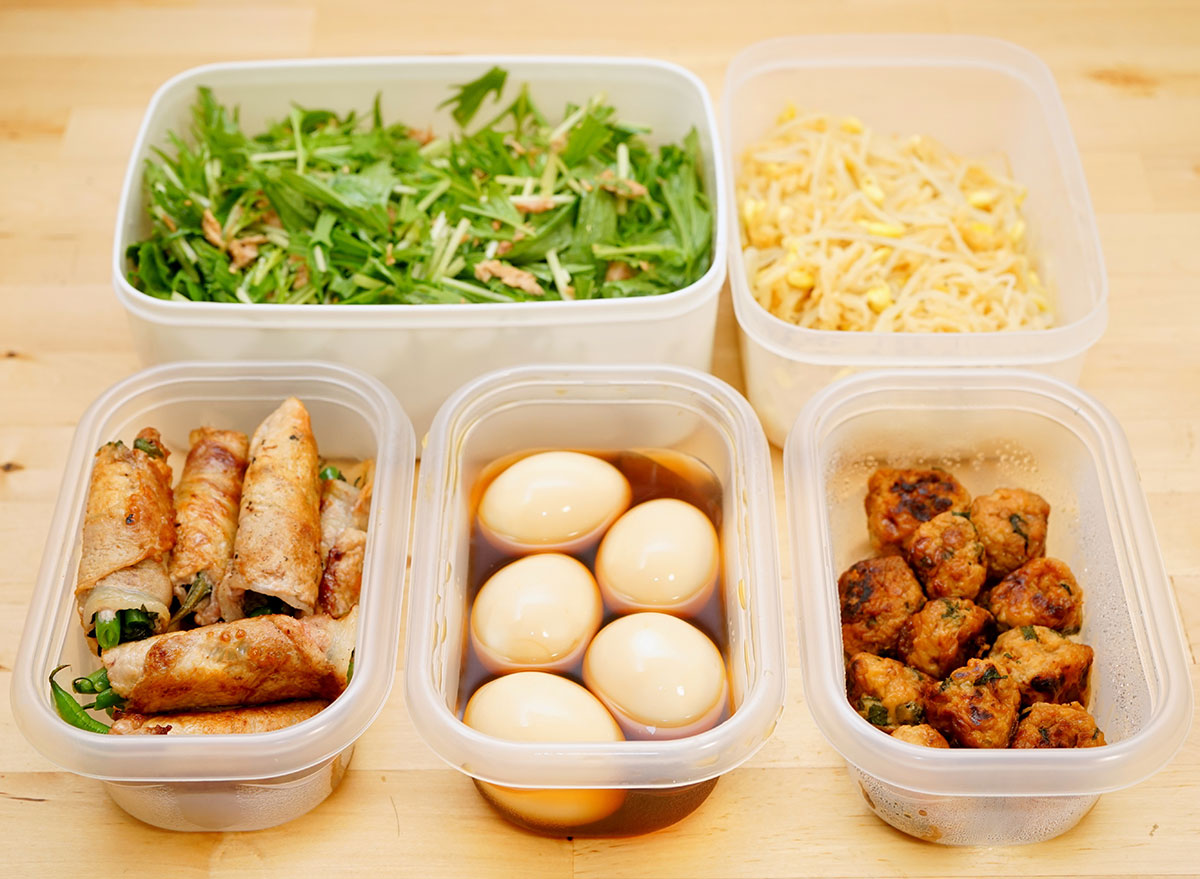
The beauty of cooking at home is the abundance of leftovers. And those leftovers mean tons of new meals you can create in the days ahead. “For example, if you have leftover turkey burgers, crumble one up into some scrambled eggs with spinach and feta cheese for breakfast. Or chop up last night’s roasted veggies and add them to your salad at lunch,” suggests Lawless. “Keeping leftovers at the front your fridge shelves helps you get creative when you are reminded they’re there.” For more sure-fire ways to lose your belly, don’t miss these 50 Best Ever Weight-Loss Secrets From Thin People.
Make Your List and Check It Twice
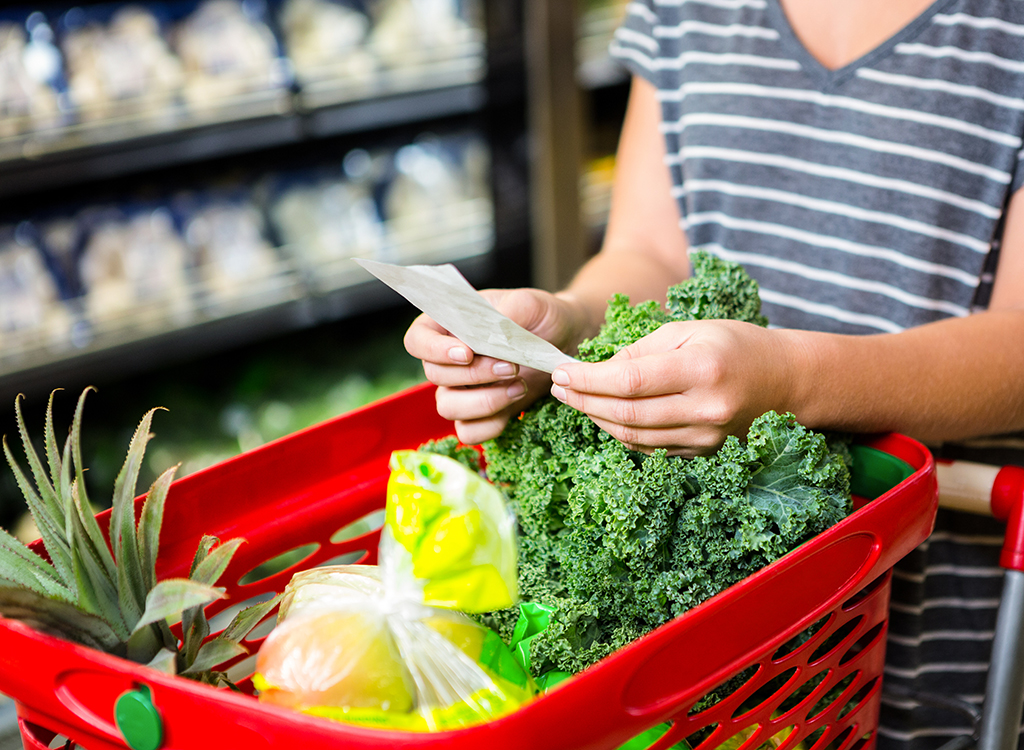
This is a simple, but profound rule of thumb. “If you don’t have a list, you will inevitably come home with lots of things you don’t really need,” says Lawless. “Plan the meals you want to make and buy only the things you need for those meals. This will also help you minimize buying junk food and snacks you just don’t need in your house.”
Buy in Bulk
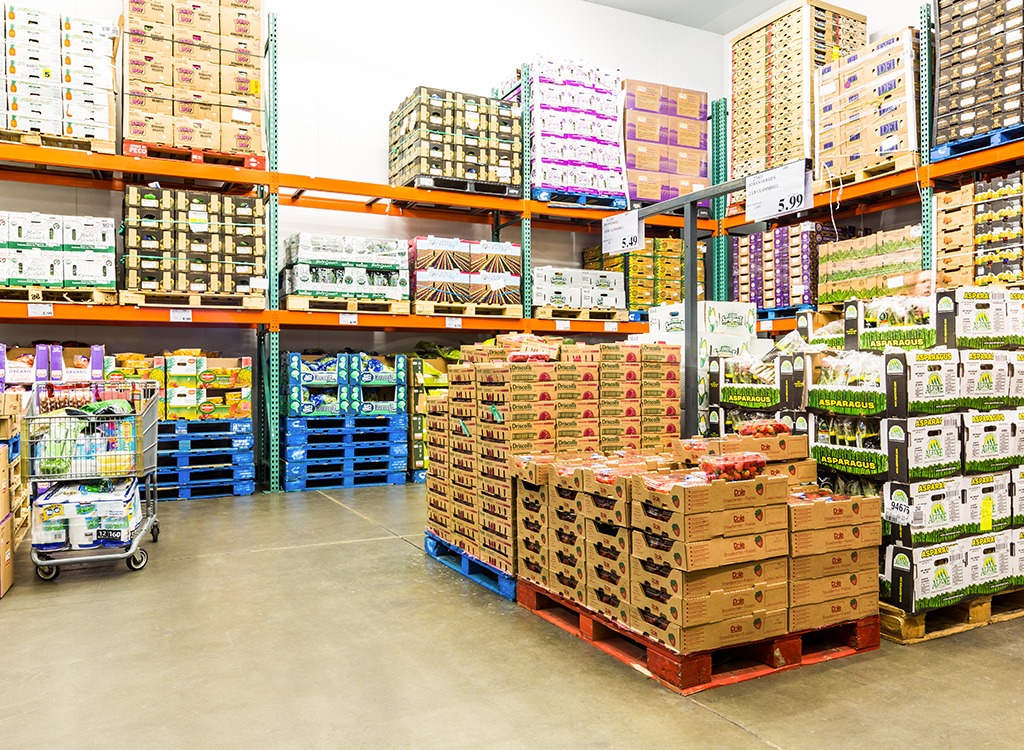
“Bulk bins are a shopper’s best friend because you can cut out the cost of packaging and buy larger quantities for less,” suggests Lawless. “This is very handy for things like nuts, seeds, whole grains, and flours that are common kitchen staples you know you will always use up.” (We love buying oats for overnight oats.)
Go for the Whole Chicken
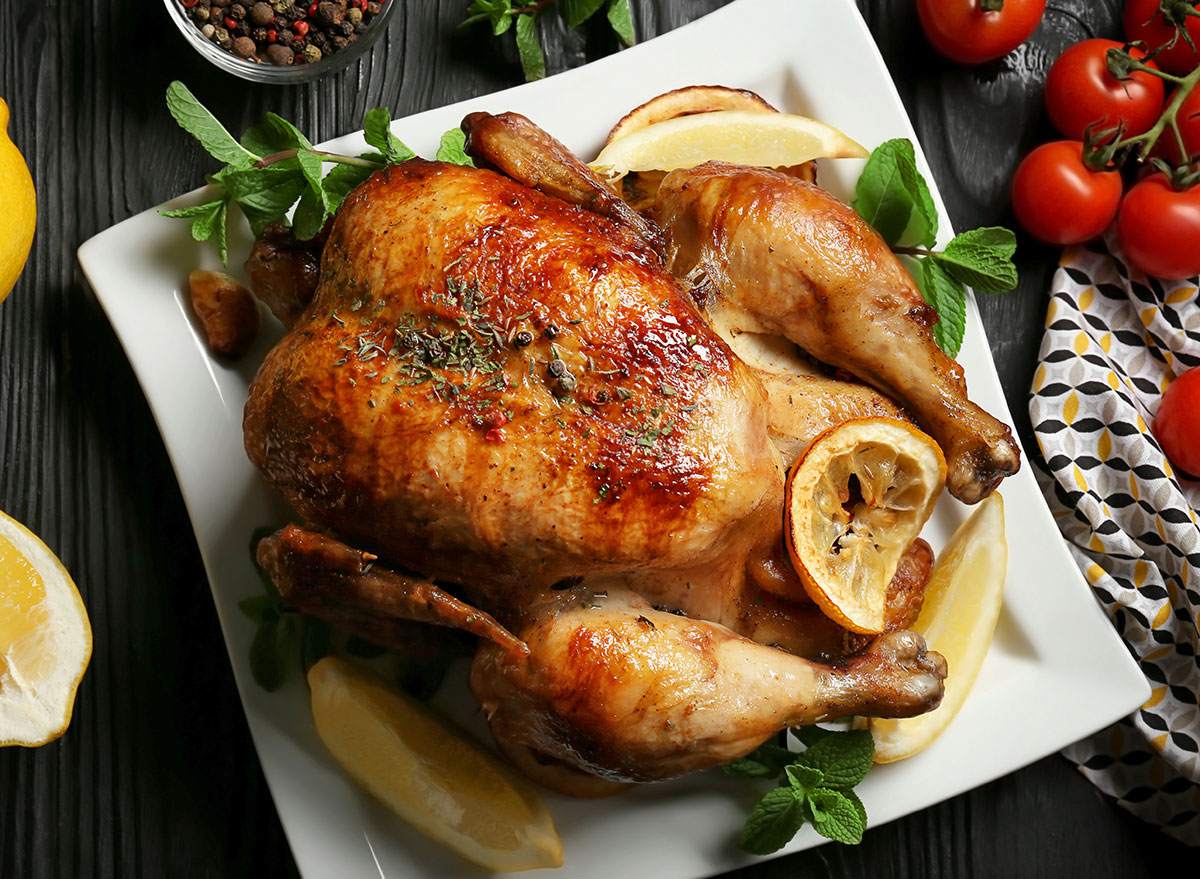
Buy the whole chicken the next time you’re at the store—don’t be afraid of it! “The whole bird can go in a pot and make delicious stock for soup. All you need is to boil the whole chicken for about an hour. Take out of the pot and add veggies such as celery, carrots, potatoes, and parsnip to make soup,” recommends Roland and Galina Denzel, co-authors of Eat Well, Move Well, Live Well: 52 Ways to Feel Better in a Week. “Then you can use the legs and wings for roasting, and chop up the breasts for tacos and salads other days of the week,” or make high protein snacks. “This can save you significant amounts of cash in the long run.”
Skip the Produce Section
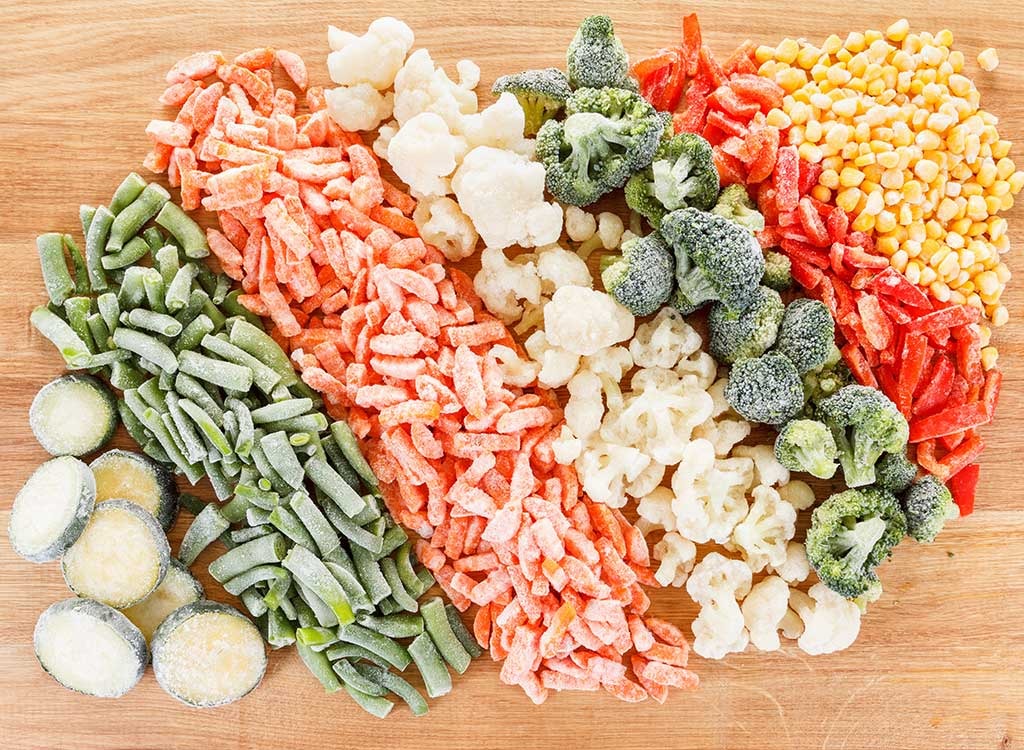
Check the frozen section of your grocery store for the frozen version of higher-priced produce items such as blueberries. “Often you will get ten times the amount for the same price and the nutrition is there, alongside the good taste,” says Roland and Galina Denzel. “Frozen fruit is great in smoothies and baked dishes.”
Plant an Herb Garden
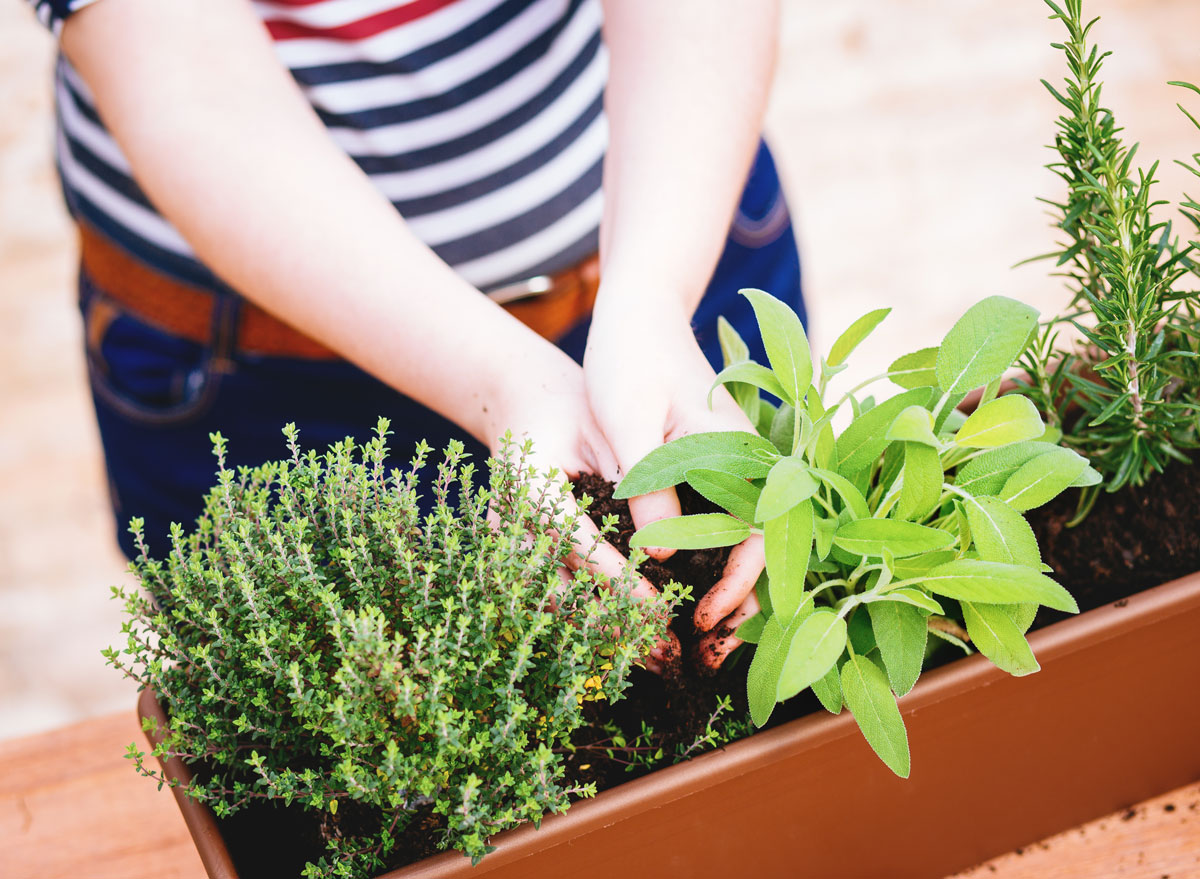
If you have a window sill, you can have your very own herb garden. “You don’t need any skill and you will have easy access to fresh herbs like basil, thyme, oregano, chives, parsley, and cilantro free most of the year,” says Roland and Galina Denzel. “Add to salads, sauces, soups, and stews.”
Brown Bag It
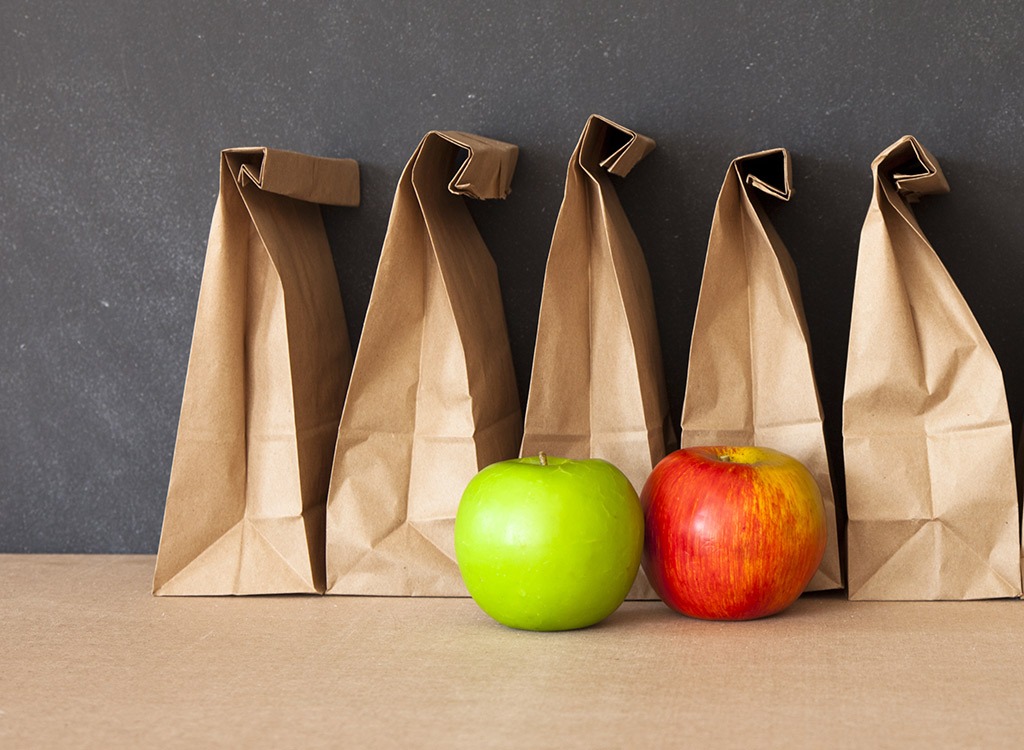
As tempting as it is to go out to lunch every day, it’s way less expensive to bring your own lunch. “Bring a portion of what you cooked for dinner and a piece of fresh fruit to save you real cash,” says health coach Talia Pollock, author of Party in My Plants. “That brown bag says you care about what you eat and how you feel.” And don’t stop there—melt even more fat using these 200 Best Weight Loss Tips!
Show the Farmer’s Market Some Love

Buy your produce—fruit, veggies, eggs—from a local farmer’s market versus a grocery store. Not only will you save significantly—and have access to fruits and vegetables that you know are chemical free—but your food will last longer and you’ll find more of a selection such as pickled veggies, baba ghanoush and assorted fresh hummus and dips. “I buy all my produce from my local farmer’s market for under $100 that lasts me two weeks,” says fitness expert Kelly Connolly. “Many farmer’s markets even sell pre-cut fruits and veggies for under $4, while nearby grocery stores sell less of a selection for $8 or more. Plus you’ll be supporting local which is always a bonus!”
Have the Big Ten on Hand
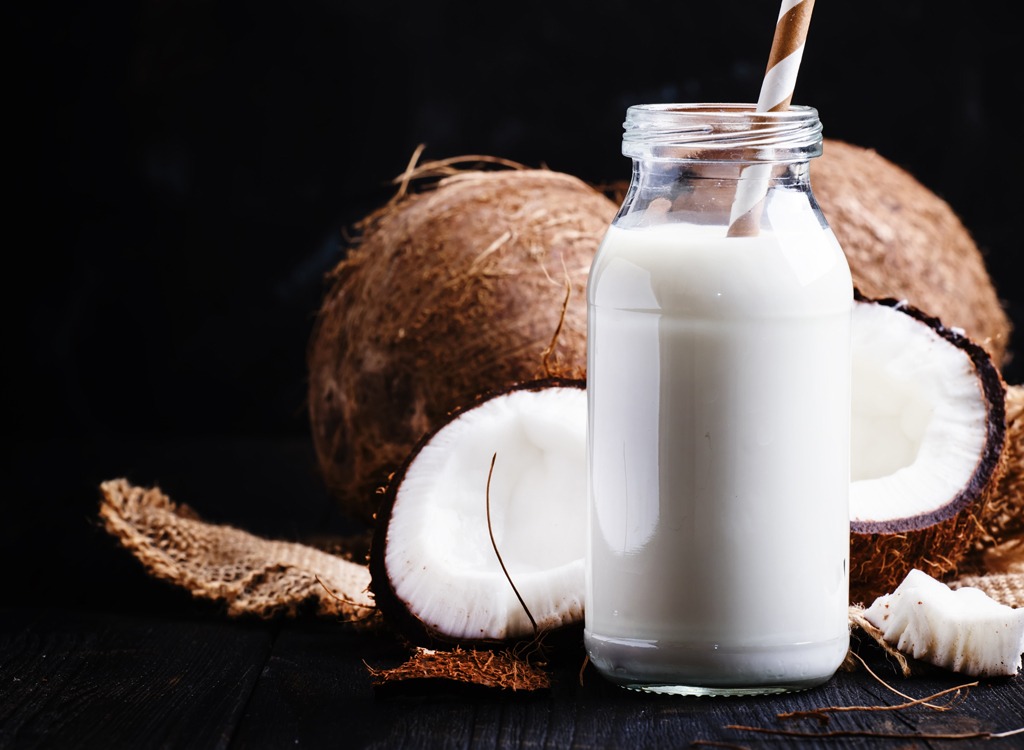
“Always try to have these ten alkaline foods in your refrigerator, as they serve as the foundation for many recipes,” says Dr. Daryl Gioffre, Founder of Alkamind. “Spinach, cucumbers, celery, avocado, red bell pepper, ginger, turmeric, kale, broccoli, and coconut milk. Not only are these my favorite alkaline superfoods, but if I have these in my fridge, I can make over 50 different recipes including smoothies, raw soups and hot soups, salads, stir fries, snacks, and entrees.” For more pro advice, click here for 40 Things Healthy Cooks Always Have in Their Kitchen!
Theme Your Week
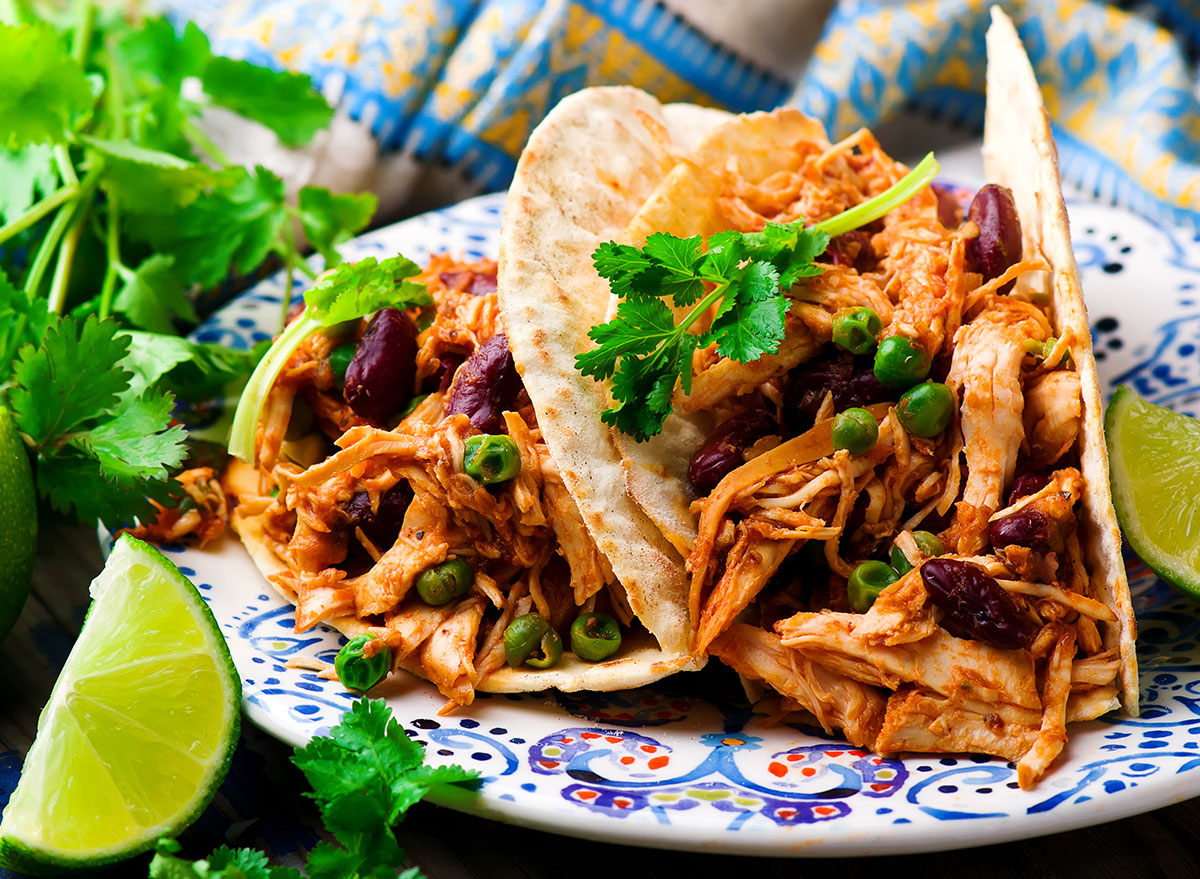
When you go to the grocery store at the beginning of the week, choose a “theme” for your meals and stick to it. “It’s a secret way to keep your grocery bill down,” says Dr. Gioffre. “Whether your nightly dinners will have a Mexican flare or be Indian-inspired is up to you—you can have ample variety within that theme—but limiting the number of different ingredients and spices needed for the week is a great way to grocery shop on the cheap, and forces you to use up all your ingredients for the week rather than throwing out leftovers.”
Buy Online

For your non-perishable goods like pasta, peanut butter, and beans—check online for sales. “Vitacost and Amazon are great websites for this,” recommends Staci Shacter MS RD LDN of the Carillon Miami Beach.
Buy the Portions You Know You Need
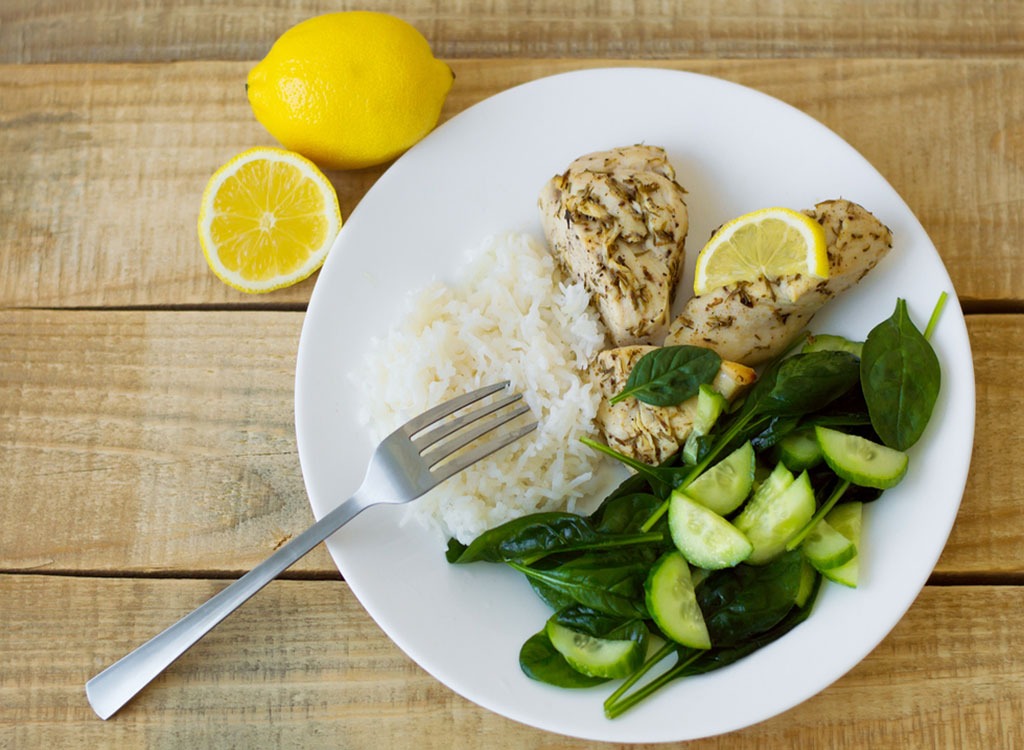
Don’t waste food and throw things away! When it comes to fresh fruits and vegetables, we have a tendency to over-buy, and then we end up throwing them away. “Ultra-fresh items like greens and mushrooms should only be purchased in amounts that you know you will use them,” says Ken Immer of Culinary Health Solutions. “Test it out. See how much salad you actually eat in a few days. It’s probably less than it might look!”
Don’t Shop Hungry

“Even just a quick bite before going into the store can be enough to last for the time you’re in the store,” says Immer. Otherwise your stomach will dictate what you buy and you’ll surely buy things you don’t need, won’t use and shouldn’t have in the house to begin with.
Make Your Own Salad Dressing
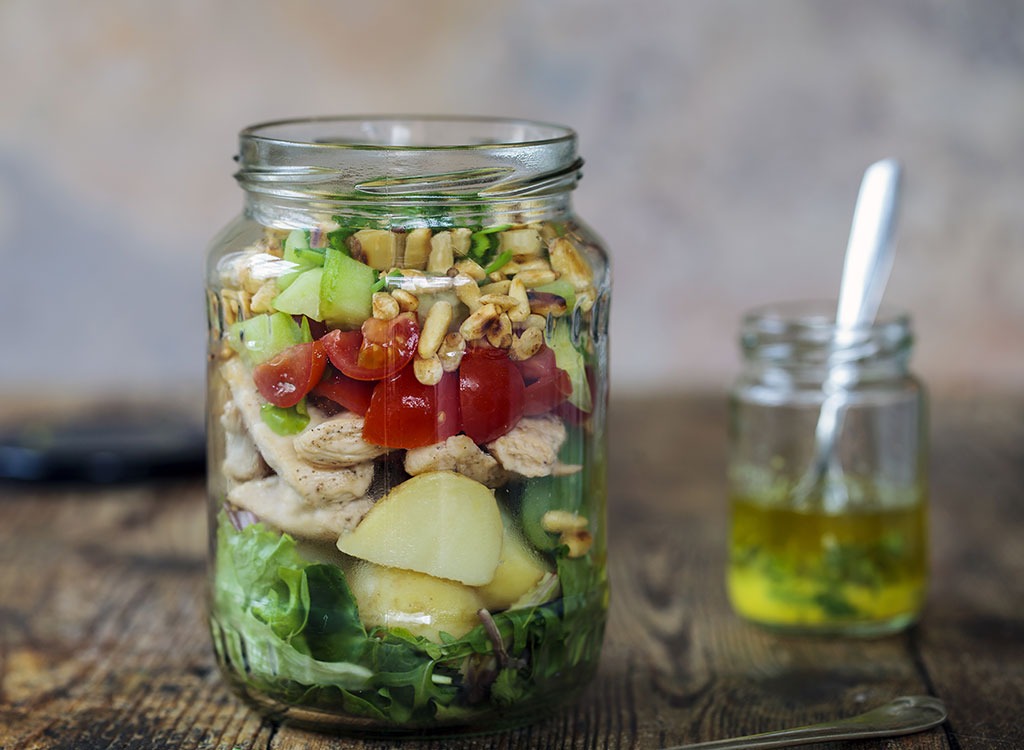
Skip the bottled salad dressings and make your own. “Eating salad is a great way to get your veggies, but many bottled salad dressings are loaded with sugar, salt and other diet-sabotaging ingredients,” says Andrea Woroch, consumer and money-saving expert. “Instead, whip up your own batch of dressing. It’s fresher, cheaper and tastier, plus you can easily shake it up in a jar and use a tablespoon to ensure portion sizes are kept in check. For example, simply combine olive oil, balsamic vinegar and salt and pepper for a tangy, delicious dressing!”
Say Goodbye to the Soda
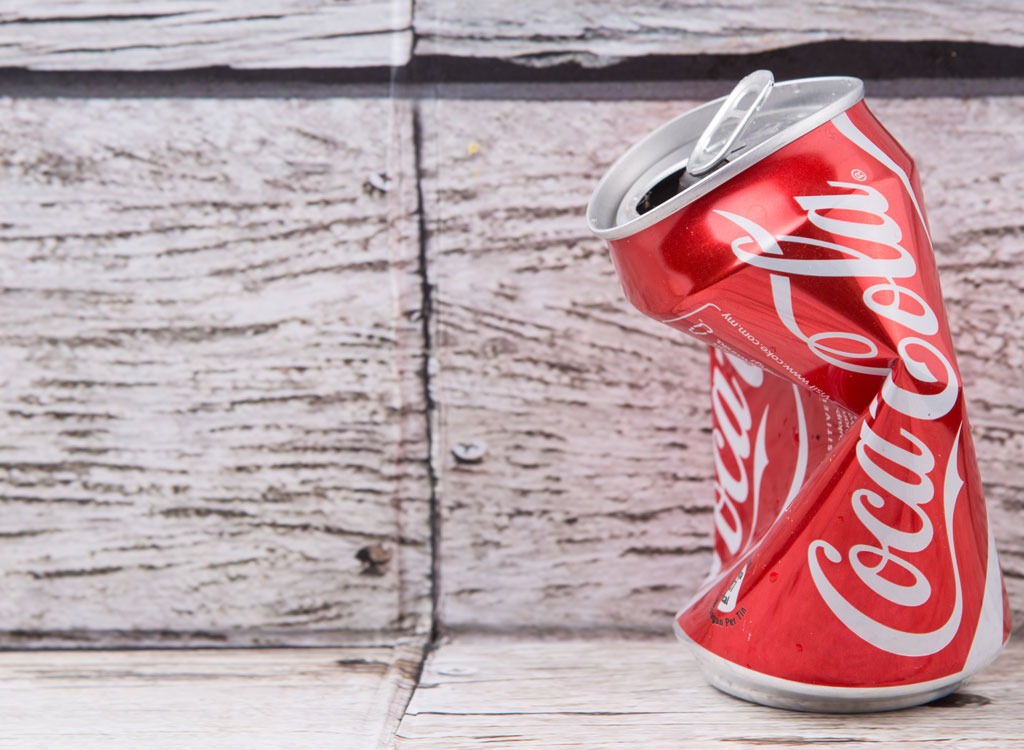
“This is hard for a lot of people, but there is nothing beneficial that soda has to offer, even diet sodas,” says Ashvini Mashru, MA, RD, LDN. “Spend that money on some good produce instead. Pop a slice of cucumber, a wedge of lemon, or some mint leaves into your glass of ice water and enjoy. It might take some time, but go without soda for a while and see if your taste buds don’t start craving water instead.”
